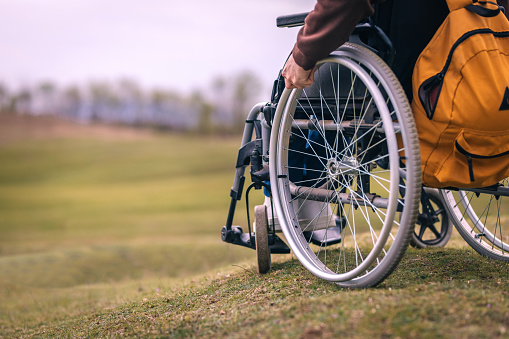
In a time of deepening inequality, a Gospel story from John 5 offers a necessary reflection for Aotearoa.
Jesus encounters a man who has waited 38 years by the pool of Bethesda — a place believed to offer healing. But healing, here, is conditional: only the quickest, strongest, or most fortunate are helped.
"I have no-one to help me," the man tells Jesus. "Someone else always gets there ahead of me."
Jesus does not wait for the waters to stir or for institutional permission. He simply says: "Get up. Pick up your mat and walk."
The man is restored — not just physically, but socially. He is no longer invisible.
This story is often treated as a healing miracle. But it is more than that. It is a critique of systems that neglect the vulnerable.
The pool becomes a symbol of exclusion, where only a few benefit, and many are left waiting.
In 2022, the creation of Whaikaha — the Ministry of Disabled People — was welcomed as a breakthrough response to long-standing fragmentation.
Disabled people had been shuffled between agencies, often receiving inconsistent and inadequate support. Whaikaha promised a new era — one focused on human dignity rather than bureaucratic boundaries.
But in 2024, the government announced a restructuring. Whaikaha was stripped of its service delivery role, which was transferred to the Ministry of Social Development.
The rollout of Enabling Good Lives — a programme promoting greater choice and control — was put on hold. Cost and efficiency were cited. But the consequences have been stark.
Early this year, the New Zealand Medical Journal warned that these changes, alongside budget cuts and funding freezes, were harming disabled people and their families.
Residential care was scaled back. In-home support became harder to access. Families and carers were under pressure, and mental distress was rising.
The May 2024 "A Thousand Cuts" report from the Fairer Future Coalition documented the cumulative impact of recent government policies — from the return of prescription fees and higher transport costs, to changes in welfare and education.
It estimated that families with a disabled member now face up to $5500 more in annual costs. This is not just a policy failure. It is a moral one.
In response, the May 2025 Budget committed $1 billion over four years to stabilise disability support services. This investment is widely welcomed.
The government says it will help ensure access to essential equipment, services, and support for those in need.
But it comes with caveats. Whaikaha will now focus solely on advocacy, while the Ministry of Social Development oversees delivery.
Some see this as a pragmatic division of roles. Others worry it further marginalises the voices of disabled people from decisions that affect them.
Meanwhile, services like Enabling Good Lives are operating under tighter budgets.
So, while the investment signals a welcome shift, it does not yet signify transformation. At best, it may stabilise a strained system.
This raises an unsettling question: are we merely managing a crisis, or working towards justice?
Theologically, Jesus’ action at Bethesda disrupts the logic of worth. The man is not asked to prove his eligibility or moral standing. He is seen, addressed, and restored.
This act affirms that dignity is not earned by productivity or independence, but by being known and included.
Yet in Aotearoa, support too often remains conditional — on diagnosis, funding, and the ability to navigate complex systems.
Needs are rationed. Voices go unheard. People feel invisible.
Disability theology calls us to see differently. The Gospel challenges us to move beyond transactional care towards communities grounded in justice and relationship.
It asks: who still lies by the pool? Who is passed over? Who is told to wait?
Real healing requires more than medical intervention. It demands systemic change.
It calls for policies that prioritise dignity over dollars and inclusion over convenience. It urges us to see disabled people not as burdens or recipients, but as neighbours, kin, and co-builders of a just society.
We need more than restored funding—we need restored trust. That means honouring lived experience, enabling choice, and redesigning systems that currently reinforce exclusion.
The Gospel does not promise a world without suffering. But it does promise that no-one should suffer unseen or alone.
In Aotearoa today, that means ensuring equitable access to healthcare, housing, education, and community — not as acts of charity, but as marks of justice.
When Jesus says, "Pick up your mat," he gives the man back his agency — and calls the community to carry the weight of shared responsibility. His healing act dismantles exclusion and creates space for belonging.
Will we do the same?
• Dr Graham Redding is the Douglas Goodfellow lecturer in chaplaincy studies at the University of Otago.










